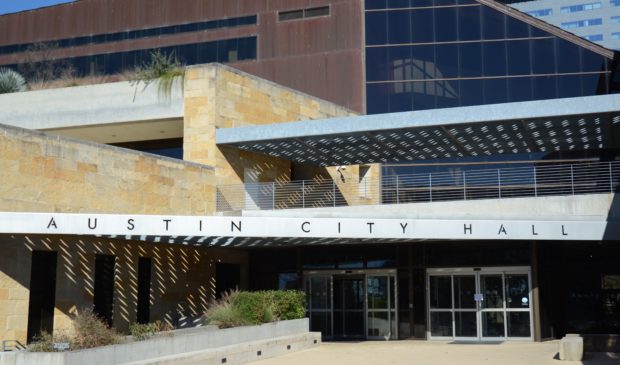Council to consider changes to Community Development Commission
Tuesday, August 28, 2018 by
Jack Craver The city of Austin may be dealing with yet another headache over who gets to sit on a city commission and who should or can be removed.
The Community Development Commission is responsible for overseeing the implementation of projects funded by two federal programs: the Community Development Block Grant and the Community Service Block Grant.
Unlike every other city board and commission, the CDC’s membership is partially dictated by federal law, which requires seven of the members to be appointed by City Council and eight to be “democratically elected” by an organization representing low-income communities.
It’s up to city staff to pick an organization that it believes best represents a neighborhood; often it chooses either the neighborhood association or the neighborhood plan contact team.
Critics of neighborhood associations have long contended that they disproportionately comprise older homeowners and that some require dues that are likely to deter participation from lower-income residents. A 2016 city audit levied similar criticisms at contact teams, which, unlike neighborhood associations, are a creation of city government.
“I don’t particularly think that’s democratically selected,” said Council Member Jimmy Flannigan during a discussion about the commission’s bylaws at the Aug. 14 meeting of the Audit and Finance Committee.
Council Member Ellen Troxclair expressed similar skepticism: “I would be interested to know how many people are actually showing up and voting,” she said.
There’s another potential problem with the elected members of the CDC. What is the process for removing them for bad behavior?
Currently the rules say that all members serve at the pleasure of Council. However, officials with the Texas Department of Housing and Community Affairs have told the city that Council does not have the authority to remove elected members of a board.
Under the new rules proposed by city staff, the commission would be able to vote to remove one of the elected members by a majority vote.
TDHCA also said that Council should revise its process for appointing the other seven members. Since the new 10-1 Council took over in 2015, the mayor has appointed all seven; TDHCA has said that it must be the full Council making the appointments.
Recently, the Montopolis Neighborhood Association elected outspoken housing activist Fred McGhee to sit on the commission. McGhee served on the commission as an appointee of the mayor from the beginning of 2015 until late 2017, when he said that he left to deal with the death of his mother.
However, McGhee acknowledged that he was “dressed down” by Mayor Steve Adler for sexually charged comments he made to a city employee during a commission hearing in May of 2017.
Responding to comments from then-Assistant Director of Neighborhood Housing and Community Development Rebecca Giello about staff’s need to do community outreach before moving forward on an affordable housing project, McGhee said that the city often doesn’t care about doing community engagement, but that “all of a sudden, now you getting warm and moist about it … that’s OK.”
McGhee denied that his comments were sexist or offensive.
“Is the language choice provocative? I suppose, even within the context of the time, sure,” he said. “But, look, from my perspective, as a person who represents the least of Austin’s population, not the richest of the rich, I will not accept somebody trying to tell me, or the people that I represent, something that is false.”
At the Aug. 14 meeting, Troxclair said she was “uncomfortable” with the notion of the commission being able to remove a member by a simple majority vote. Mayor Pro Tem Kathie Tovo suggested increasing the required vote for removal to a supermajority.
Despite arguing that city staff has repeatedly tried to undermine the influence of advocates such as himself, McGhee said that he would support the new bylaws.
Photo by John Flynn.
The Austin Monitor’s work is made possible by donations from the community. Though our reporting covers donors from time to time, we are careful to keep business and editorial efforts separate while maintaining transparency. A complete list of donors is available here, and our code of ethics is explained here.
You're a community leader
And we’re honored you look to us for serious, in-depth news. You know a strong community needs local and dedicated watchdog reporting. We’re here for you and that won’t change. Now will you take the powerful next step and support our nonprofit news organization?








